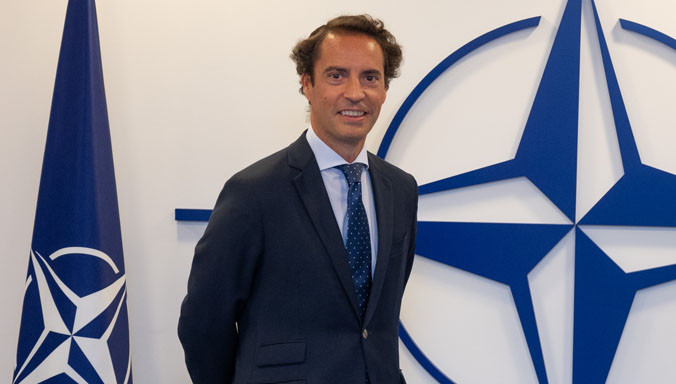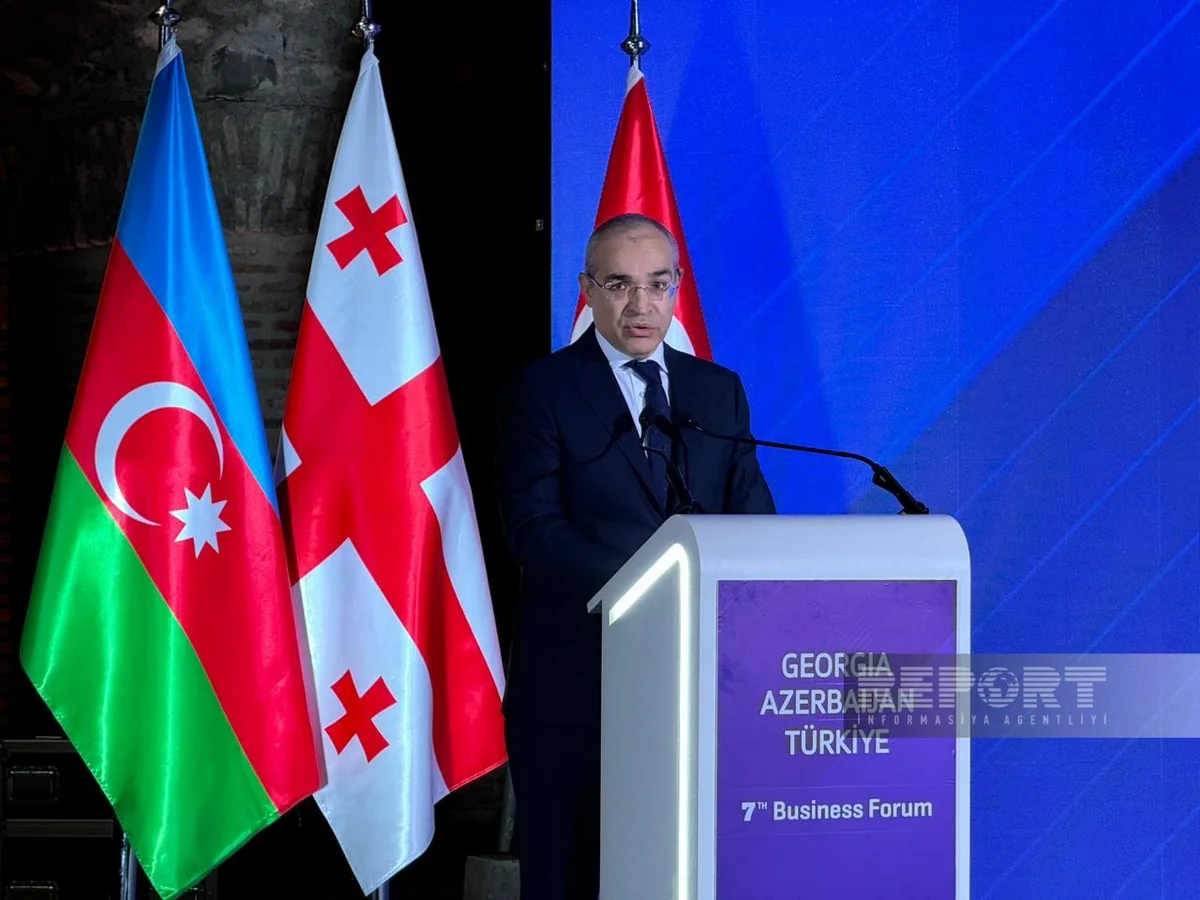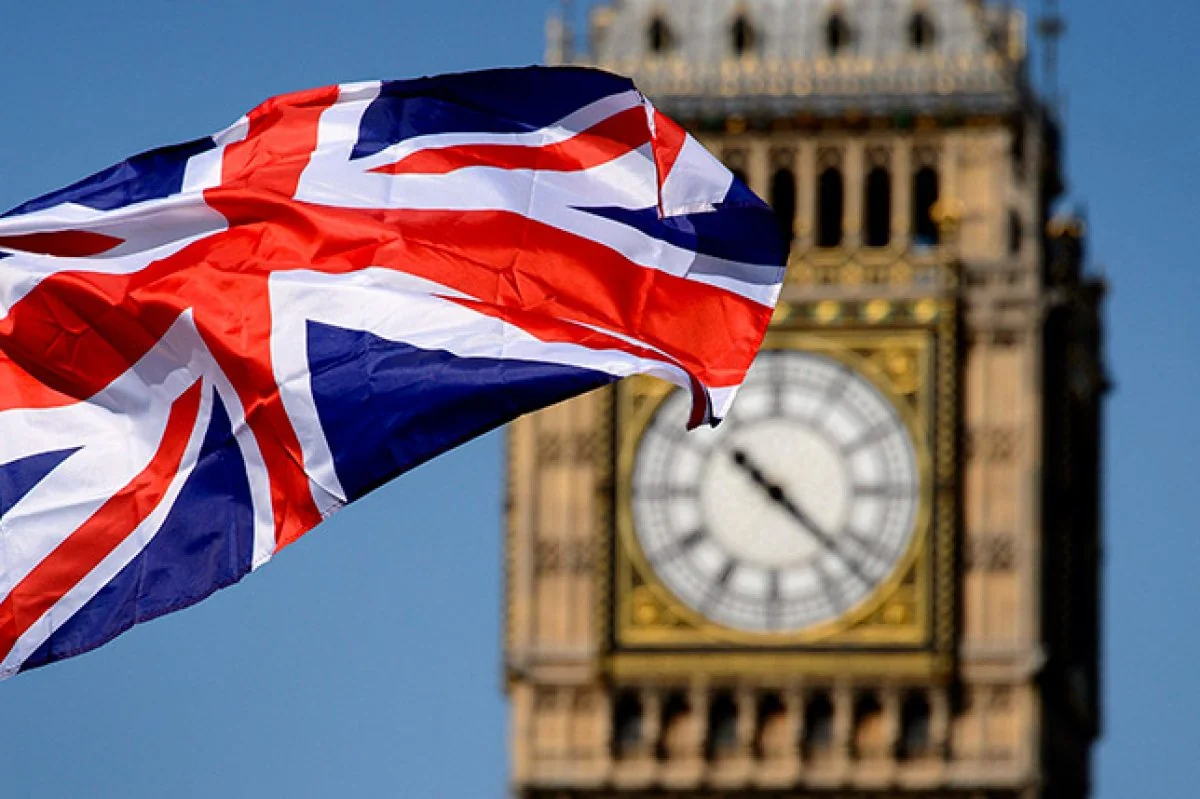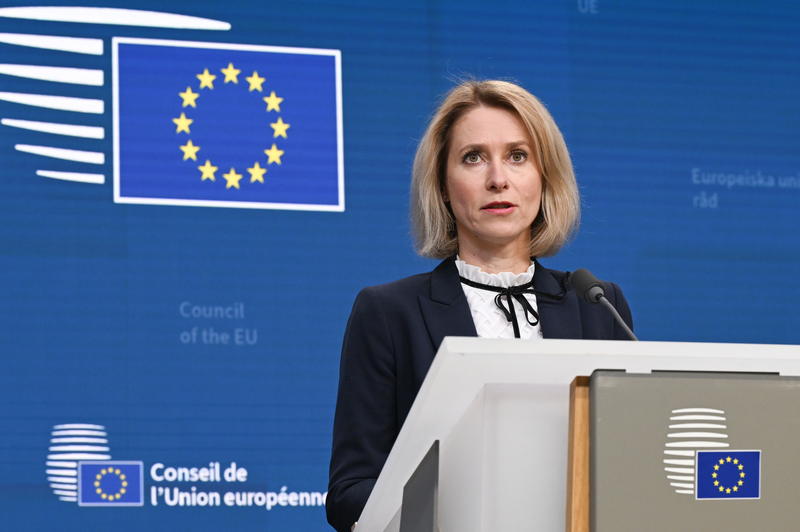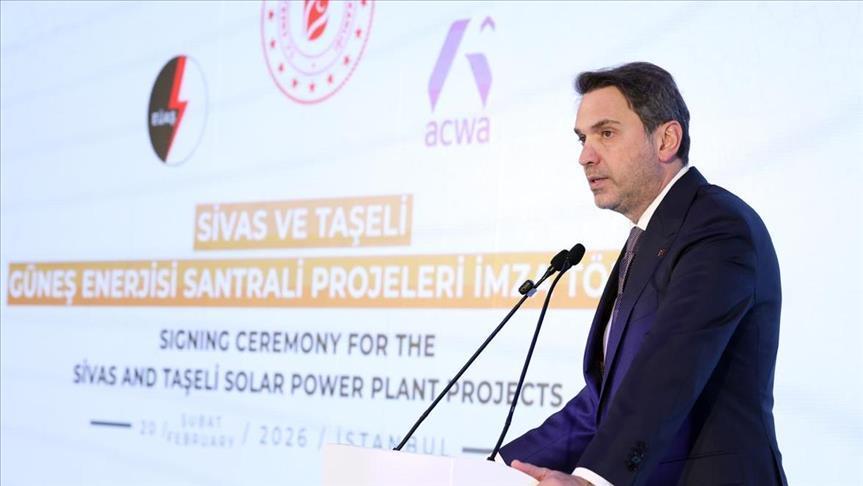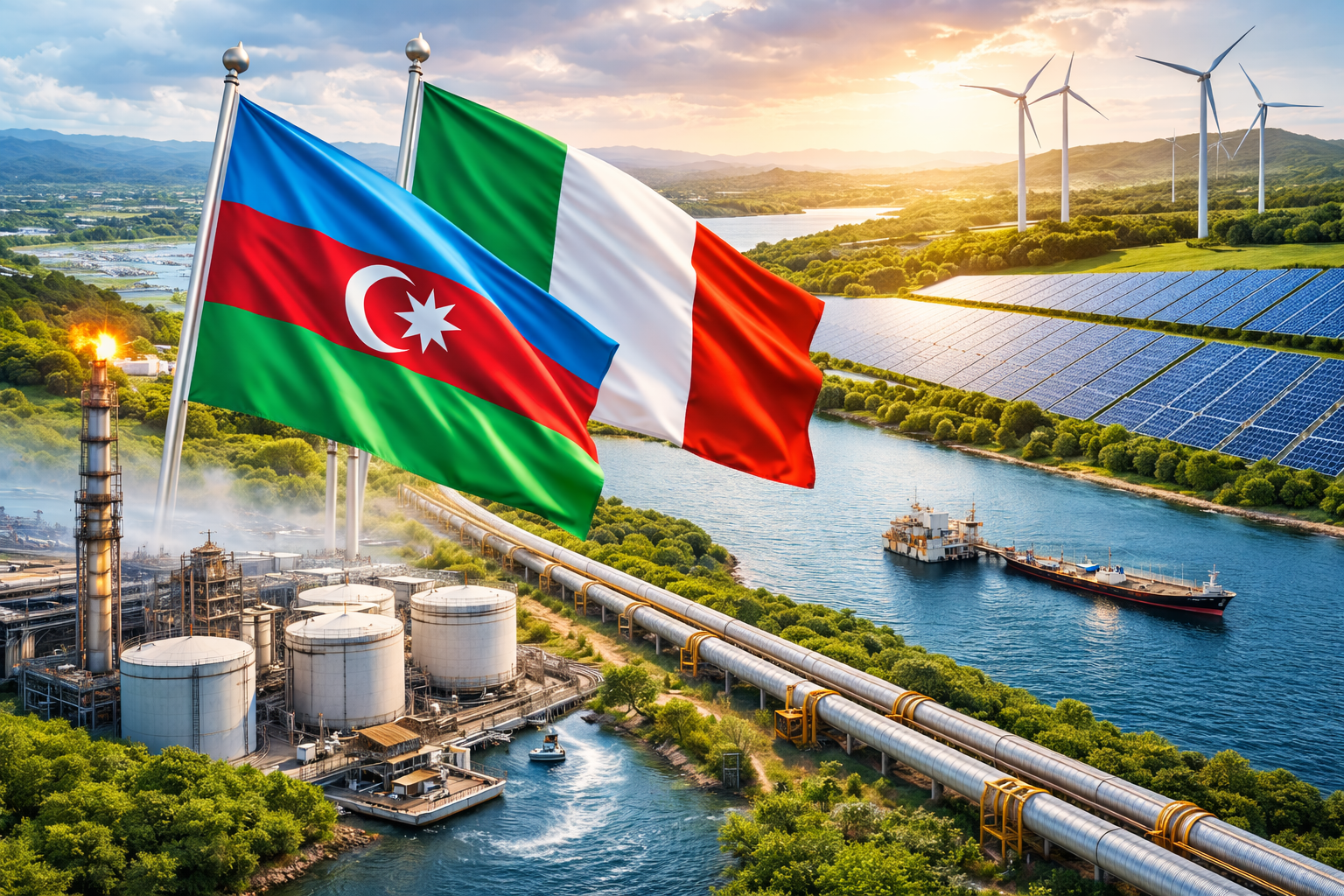NATO Secretary General’s Special Representative for the Caucasus and Central Asia, Deputy Assistant Secretary General for Political Affairs and Security Policy, Javier Colomina, answered questions by Europetime about the NATO Summit, NATO-Georgia relations, the Russian war in Ukraine, the accession process of Finland and Sweden, as well as other topical issues.
ET: What is your opinion on the implications of Russia’s invasion of Ukraine for NATO? In the long run, how do you view these consequences, and how do you see the alliance's relations with Russia in general?
Russia’s aggression against Ukraine represents the gravest threat to Euro-Atlantic security in decades. It has shattered peace in Europe and is causing enormous human suffering and destruction. We see President Putin concentrating his forces in eastern Ukraine after his failed offensive against Kyiv. Russia is now engaged in a war of attrition, with high numbers of casualties on both sides. The Russian military has resorted to indiscriminate levelling of Ukrainian cities. Schools, hospitals, and residential areas have been flattened and the humanitarian conditions in Russian-controlled areas are dire. Furthermore, President Putin’s war is driving up food prices, pushing people into poverty and destabilising entire regions. This is cynical and destructive and the costs are being borne by the world’s most vulnerable people. We call on Russia to immediately end its blockade of Ukrainian ports; and Allies are working hard, also with the United Nations, to find solutions.
Against this background, NATO continues to pursue two parallel priorities. First, we continue to support Ukraine. On the other, we are making sure that this war does not escalate further into Allied territory, while we keep protecting one billion of our citizens living in NATO countries.
NATO Allies have provided support for Ukraine for many years, including with equipment, financial support, and training for tens of thousands of Ukrainian troops. Allies and partners have already provided Ukraine with billions of dollars’ worth of lethal and non-lethal equipment, as well as humanitarian aid. All of this is making a difference on the battlefield, helping Ukraine to uphold its right of self-defence, which is enshrined in the United Nations Charter. Allies are also providing substantial humanitarian aid, including by hosting millions of refugees. They are now stepping up further, with many types of light and heavy military equipment.
Secondly, we reacted to Russia’s invasion of Ukraine with speed and unity, to protect our nations. Over 40,000 troops are now under direct NATO command, backed by major air and naval power. This is to deter further Russian aggression, in other words, aimed not at provoking a conflict, but rather at preventing it and restoring peace.
We continue to call on President Putin to stop his war in Ukraine, withdraw his troops and engage in good faith in the diplomatic process.
Our relationship with Russia is at its lowest point since the Cold War. We regret this, and it is not of our choosing. Our relationship with Russia was not always like this. The fall of the Berlin Wall ushered a new era of partnership with Russia. For many years, we would discuss our common security in the NATO-Russia Council. We cooperated in areas of common interest, from counter-terrorism to arms control, and we worked closely together in Afghanistan. Russia chose to walk away from this partnership. The war in Ukraine is part of a long pattern of Russia using military force to achieve its political aims, as Georgians are well aware.
ET: As for the status of NATO-Georgia relations and implications of Russia’s invasion of Ukraine, what are the fundamental pillars that the Alliance will use to make future decisions? Has anything fundamentally changed?
First of all, the current security environment makes NATO’s partnership with Georgia even stronger and closer. We intensified our dialogue in recent months: Foreign Minister Darchiashvili and Defence Minister Burchuladze participated in various meetings with their NATO counterparts; Prime Minister Garibashvili met with the NATO Secretary General last May; and I visited the South Caucasus last April. We also maintain a strong level of practical cooperation, with the third NATO-Georgia Joint Exercise last March, and many other ongoing activities under the umbrella of the Substantial NATO-Georgia Package.
Against the backdrop of Russia’s unlawful invasion of Ukraine and of its security implications, including for the Black Sea region, Allies have agreed to step up the scope of practical assistance to Georgia. We are currently discussing what this should entail and I expect that more details will be unveiled at the NATO Summit in Madrid next week.
The Georgian government has clearly stated that integration into NATO continues to be a top foreign policy and security objective for the country. This also means that, as I have said at other times, we expect Georgia to redouble its efforts in key reform areas such as the judiciary, media freedom and accountability of the security sector. On our side we stand by our commitments from the 2008 Bucharest Summit on Georgia’s aspirations towards NATO membership. Our support for Georgia’s sovereignty and territorial integrity - within international recognized boundaries - remains unwavering. We also continue to recognize Georgia’s contribution to our shared security. Georgia has been one of the largest contributors to our missions in Afghanistan and played an important role in the evacuation efforts in Summer 2021. Georgia also participates in the NATO Response Force; and it has recently led a NATO-Georgia exercise, which involved around 600 troops.
ET: What system or tool may be put in place to provide tailored support to Georgia in the face of heightened threats? How might the Alliance aim to continue its cooperation with Georgia at a new stage, possibly in a new format?
As I mentioned before, in light of the unprovoked Russian invasion of Ukraine, Allies have agreed to step up assistance to partners such as Georgia, which is one of NATO’s closest partners and has been subject to Russian hybrid threats and pressure since many years. Rather than establish new tools or systems, we should build on the Substantial NATO-Georgia Package and increase our support to Georgia by in the areas of situational awareness, secure communications, resilience and cyber. We are currently discussing, together with Georgian authorities, what these measures should entail in more detail and we expect them to be adopted at the Madrid Summit.
ET: Can Georgia expect any concrete, tangible results from the next summit? What will be the main focus of the summit, and what could you say about Ukraine?
We will take important decisions at the NATO Summit in Madrid next week. We will strengthen our deterrence and defence; we will agree to support Ukraine for the long haul; we will agree NATO’s next Strategic Concept, which represents the blueprint for our future adaptation in an age of increased strategic competition with authoritarian powers like China; and we will agree to support further our partners at risk with tailored measures.
We will commit to working even more closely with our partners in the Asia-Pacific and other like-minded partners around the world. We will also review progress on burden-sharing, because it is clear we must continue to invest in our defence, and to invest more and better together in NATO. Only North America and Europe, working together in a strong NATO, can keep our one billion people safe in a more dangerous world.
The participation by NATO partners will also be a distinctive feature of our Summit in Madrid. President Zelenskyy has been invited to address NATO leaders at the Madrid Summit and Prime Minister Garibashvili will also be invited to participate in one of the sessions, which shows the importance of our partnership. Invitations to participate have also been extended to Finland, Sweden, and the European Union, as well as to our Asia-Pacific partners Australia, Japan, New Zealand, and the Republic of Korea.
ET: What are your thoughts on the prospects for Finland and Sweden joining NATO? How do you think Turkey's concerns may be addressed before the Summit?
The applications by Finland and Sweden to join our Alliance are historical. As NATO Secretary General, Jens Stoltenberg said, “They send a clear message: aggression does not pay; intimidation does not work; and NATO’s door remains open.”
Finland’s and Sweden’s potential accession to NATO would make both countries safer. It would also make NATO stronger, given that both Finland and Sweden are strong democracies and resilient societies, have considerable military capabilities - including substantial reserves and advanced aircraft and naval forces, all able to work together with NATO – and are long-standing contributors to past and current NATO-led missions (in Afghanistan, in Kosovo, and in Iraq), as well as to NATO and Allied exercises.
As the NATO Secretary General said: “We are now considering the next steps on Finland and Sweden’s path to join our Alliance; as we do this, we take into account the security interests of all Allies; when an Ally raises concerns, we address them seriously and we find common ground; so we are now working through Türkiye’s serious security concerns, including on terrorism. Türkiye is an important Ally, with a strategic location, playing a key role in the Black Sea, bordering Syria and Iraq, vital for our fight against ISIS. Türkiye is also the NATO Ally that has suffered more terrorist attacks, including at the hands of the PKK. We are now working together, in a constructive spirit, to find a united way forward. All Allies agree that NATO's door is open, that enlargement has been an historic success, and that we must continue to stand together as we face the greatest security crisis in a generation.”
Let me add that from a security perspective, Finland and Sweden are in a better place now than they were before they applied. Many Allies have already made clear commitments to Finland and Sweden’s security; and NATO has increased our presence in the Baltic Sea, including with more exercises; for example, Finland and Sweden have been involved in several Allied exercises in recent weeks, including BALTOPS, bringing together 7,500 personnel from 14 Allies – including from Türkiye. This is a clear demonstration of NATO’s commitment to this region.


